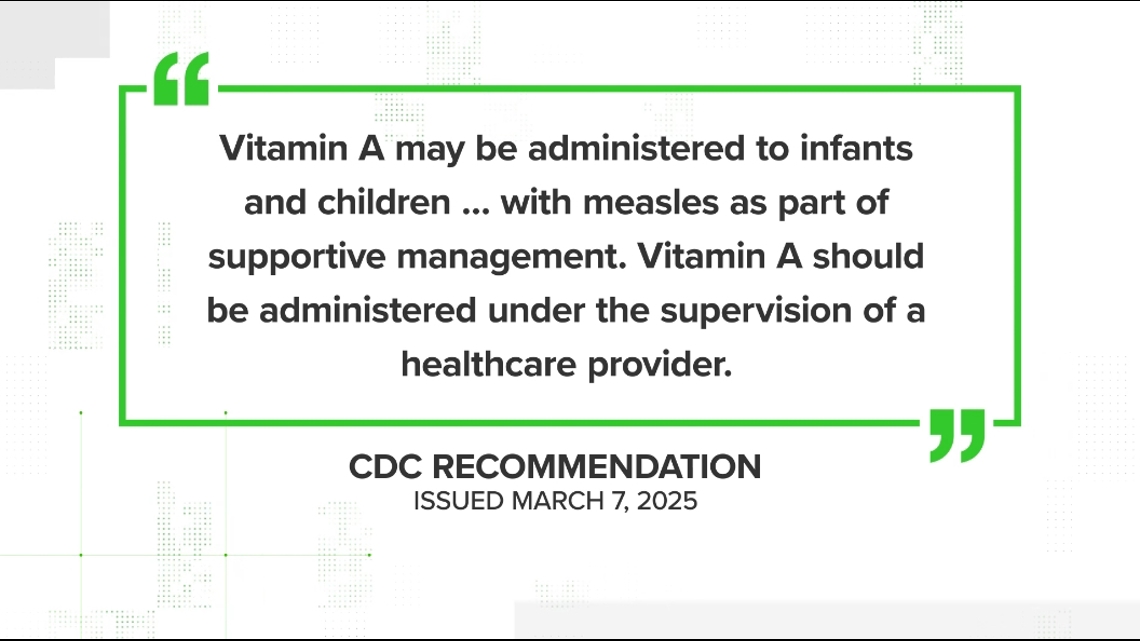HOUSTON — The measles outbreak in West Texas continues to spread, now infecting 223 people. While it hasn’t reached the Houston area, the situation raises important questions about prevention and treatment.
Recently, some claims have circulated that Vitamin A can be used as a treatment for measles. But is that true? Let’s verify.
Our sources:
-
World Health Organization (WHO)
-
Centers for Disease Control and Prevention (CDC)
-
Memorial Hermann
-
Baylor College of Medicine
What we found:
The claim gained attention after newly appointed U.S. Health and Human Services Secretary Robert F. Kennedy Jr. stated that doctors have treated measles patients with cod liver oil, which contains high amounts of Vitamin A.
According to the World Health Organization, complications from measles are more common in malnourished children, especially those with Vitamin A deficiencies. WHO does recommend Vitamin A supplementation to help prevent measles-associated complications, but not as a treatment to fight the measles.
According to the CDC, Vitamin A may be administered to infants and children with measles under the supervision of a healthcare provider. However, they stress that it is not a substitute for vaccination and warn that excessive Vitamin A intake can be toxic.


Dr. Linda Yancey, an infectious disease specialist with Memorial Hermann, explains:
“Vitamin A is given to children in resource-poor settings to somewhat speed recovery from measles. It does not treat measles, it does not prevent measles.”
Dr. Jill Weatherhead, an associate professor at the Baylor College of Medicine, adds:
“It’s helping your immune response react to the measles virus, but it is not an antiviral medication. It also helps maintain the mucosal barrier of your lungs and intestines, which is damaged because of measles infection.”
So, the claim that Vitamin A is used in measles treatment needs context. While Vitamin A can support recovery and help prevent complications, it does not directly fight the measles virus, prevent infection or replace vaccination.
Do you have something you’d like us to VERIFY? Either email VERIFY@KHOU.com or fill out the form below.